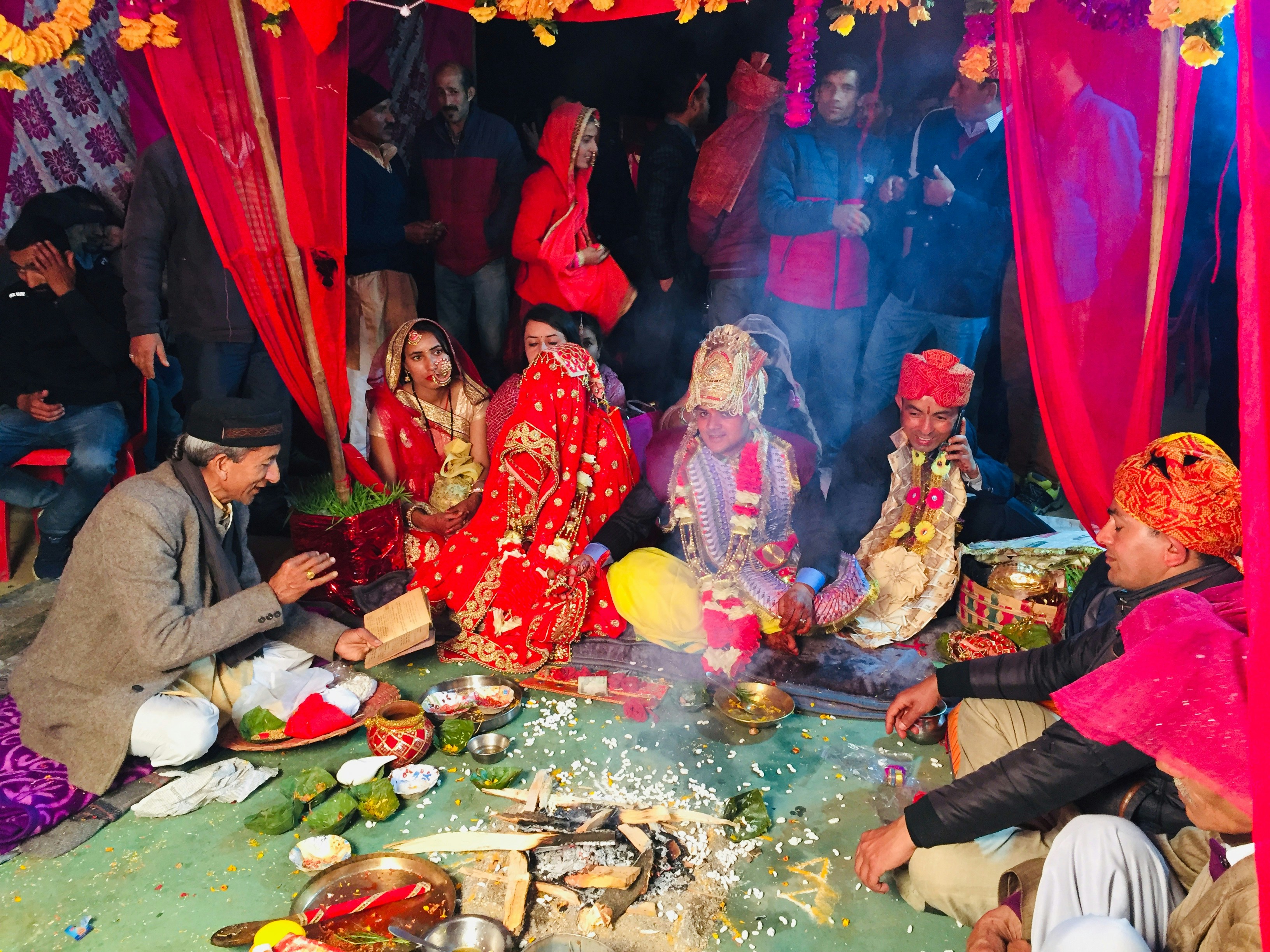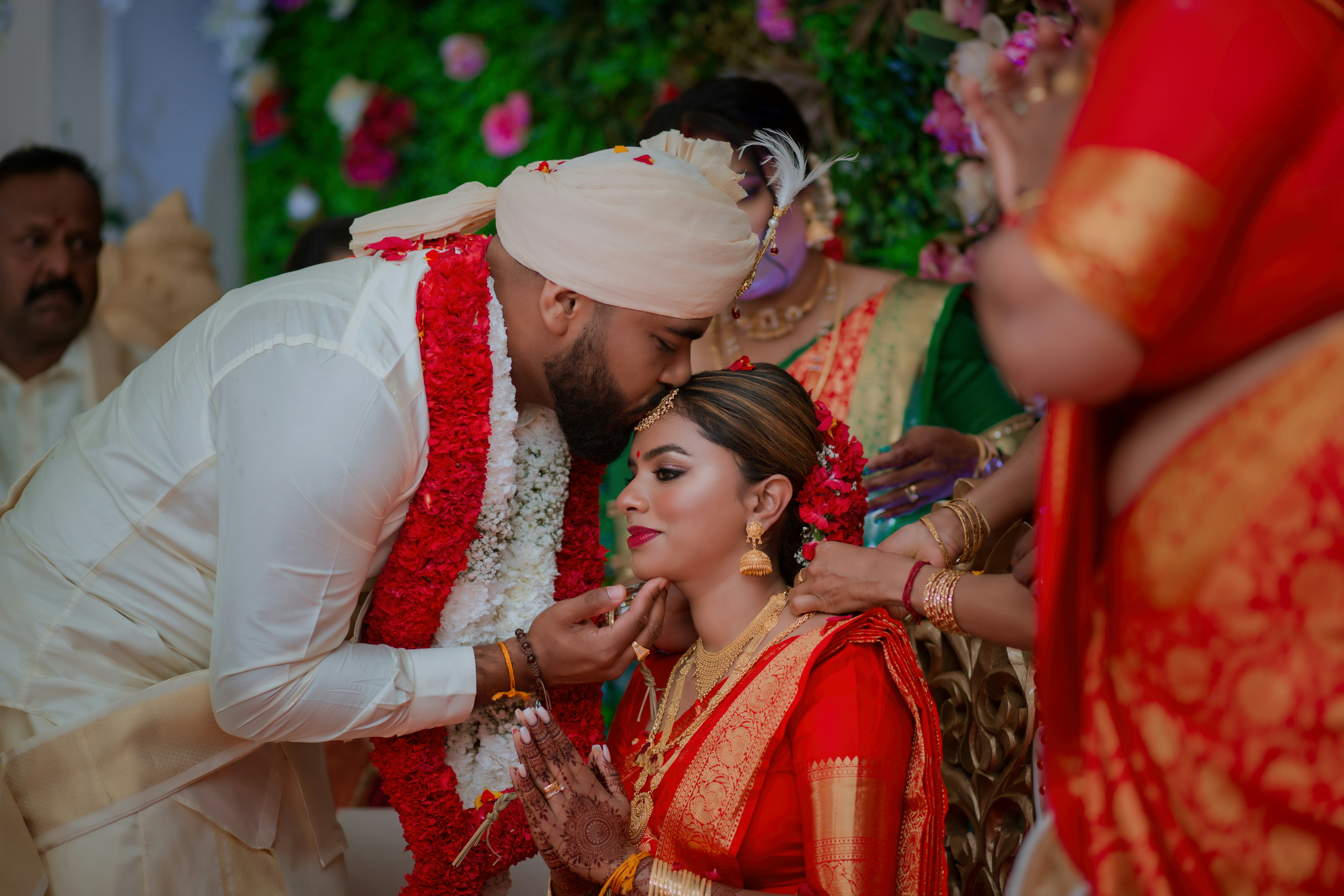Introduction to Wedding Dates
The selection of an appropriate wedding date plays a pivotal role in the cultural and personal significance of a marriage. In many societies, the chosen date is not merely a logistical consideration but is steeped in traditions that convey blessings for the couple’s future together. The matrimony date often embodies deep cultural beliefs, and selecting a date viewed as auspicious is considered integral to the overall success of the union.
From a cultural perspective, different communities exhibit unique customs when it comes to determining wedding dates. Many traditions espouse the belief that certain dates carry more favorable energy or luck than others, often influenced by local folklore or historical events. For example, in many Asian cultures, specific numbers are believed to be lucky, influencing couples’ choices when planning their wedding. The cultural significance associated with particular dates reflects various perceptions of fortune, prosperity, and harmony within the relationship.
Beyond culture, numerology also plays a significant role in determining auspicious wedding dates. This ancient discipline interprets the vibrational frequency of numbers and how they correlate with interpersonal relationships. Couples may opt for dates that, based on personal numerological calculations, symbolize love, unity, or strength. Similarly, astrology is often consulted, as individuals may seek to align their wedding date with celestial events that are believed to enhance compatibility and future happiness.
Selecting a wedding date rich in cultural, numerological, or astrological significance is often viewed as a blessing that can lay the foundation for a harmonious and joyful marriage. Many believe that by choosing an auspicious date, couples can invite positive energy into their relationship, helping to cultivate an enduring bond that thrives through life’s challenges. Understanding these considerations can empower couples in their wedding planning journey, enabling them to select a date that resonates deeply with their shared values and aspirations.
Cultural Significance of Wedding Dates
Wedding dates hold profound cultural significance across various societies, with traditions often influencing the selection of auspicious days for marriage. Cultures worldwide have their unique beliefs, which intertwine religious practices, astronomical events, and seasonal changes. For many, choosing the right wedding date is considered pivotal, as it is thought to impact the couple’s future together.
In numerous cultures, lunar calendars play an integral role in determining suitable wedding dates. For instance, in Chinese culture, specific days are believed to bring luck and prosperity, often derived from the lunar calendar. Couples consult these calendars to identify auspicious days that align with their zodiac signs, ensuring favorable cosmic influences during their wedding ceremony. Similarly, in Hindu traditions, the selection of a wedding date often involves consultation with astrological charts, emphasizing the importance of celestial bodies in shaping life events.
In contrast, some cultures rely on sacred dates from their religious practices. For instance, in Christianity, certain dates may be associated with significant feast days or saints’ days. Marrying on such days is believed to invite divine blessings and the favor of the holy figures the day commemorates. In Jewish tradition, weddings are often scheduled on days not deemed as unfortunate or significant fast days, further emphasizing the intricate relationship between faith and marital timing.
Beyond these examples, cultures may also prioritize seasonal elements, selecting times when weather conditions are favorable or when harvests are plentiful, which symbolizes abundance and fertility. Overall, the cultural significance of wedding dates reflects a rich tapestry of beliefs, ultimately uniting couples in their pursuit of a harmonious and blessed marital life.
Astrological Considerations
Astrology has long been a guiding force in various cultures, especially when it comes to significant life events such as weddings. Many couples seek the advice of astrologers to identify the most auspicious wedding dates, as these experts analyze planetary positions, zodiac compatibility, and celestial alignments. The notion is that certain times are more favorable than others, steeped in the belief that alignment of celestial bodies can positively influence an individual’s future.
Planetary positions, particularly the placement of the Sun, Moon, and Venus, are pivotal in determining auspicious days for matrimonial ceremonies. For example, a full moon is often considered most favorable because it symbolizes abundance and joy. Additionally, the transits of planets, which refer to their movement through the zodiac, can affect the energies present during a wedding. Certain days may align perfectly with beneficial transits of Venus or Jupiter, which are traditionally associated with love and prosperity, making them ideal for a marital union.
Moreover, zodiac compatibility plays a crucial role in astrological assessments. Couples’ sun signs, or zodiac signs, can reveal their levels of compatibility and the dynamics of their relationship. Astrologers often provide insights into the couple’s astrological charts, which detail the positions of various celestial bodies at the time of their birth. By comparing these charts, couples can discover harmonious wedding dates that align with their individual strengths and weaknesses. This level of personalized analysis ensures that couples can choose a wedding date that not only resonates with their love but also aligns with favorable cosmic energies.
In light of these considerations, consulting an astrologer can be instrumental in selecting a wedding date that enhances the couple’s journey together. The careful selection based on astrological principles may indeed contribute to a more blissful marriage, infused with positive energy from the universe.
Numerology and Its Impact on Wedding Dates
Numerology, the study of the mystical significance of numbers, has been utilized across various cultures for centuries to guide decisions in life, including the choice of wedding dates. This ancient philosophy posits that each number carries its own energy and vibrational frequency, which can influence events and outcomes. Couples often seek auspicious days for their weddings, believing that a carefully selected date can significantly impact their marital harmony and overall happiness.
In numerology, every number from one to nine holds distinct meanings. The number one symbolizes new beginnings and leadership, while the number two embodies partnership and balance—qualities essential for a successful marriage. Significant dates such as the 1st, 2nd, or even the 11th of a month may resonate with couples seeking to align their wedding date with positive energy. For instance, a date like June 2, 2026 (6/2/2026), when broken down, emphasizes cooperation and partnership, thereby enhancing its appeal for couples.
To calculate a personal wedding date using numerological principles, couples can begin by establishing their Life Path Numbers. This is achieved by reducing the day, month, and year of each partner’s birth date to single digits. Once both Life Path Numbers are derived, couples can explore dates that resonate well with their combined energies. This analysis could reveal dates that not only align with personal numbers but are also rich with significance for the couple. It is imperative to consider not only the general numerological meanings but also the unique dynamics of the individuals involved.
This thoughtful integration of numerology into wedding planning can provide an added layer of meaning, helping couples achieve a sense of harmony and balance as they embark on their journey together.
Auspicious Wedding Dates in 2026
Choosing the right wedding date is often rooted in cultural traditions and personal beliefs. For couples planning their nuptials in 2026, several auspicious dates emerge, guided by the lunar calendar, numerological significance, and cultural festivities. Here is a detailed list of favorable wedding dates in 2026:
1. **January 17 (Saturday)** – This date is aligned with the new lunar year, symbolizing new beginnings. It holds positive energy, making it an ideal choice for a wedding, as couples can start their journey together under auspicious stars.
2. **February 8 (Sunday)** – The eighth day of the lunar calendar is often associated with wealth and prosperity. Marrying on this day is believed to invite good fortune into the couple’s life.
3. **March 21 (Saturday)** – Known as the spring equinox, this date represents balance and harmony. Celebrating a wedding on this day is thought to enhance the couple’s relationship with mutual respect and understanding.
4. **May 1 (Friday)** – International Labor Day symbolizes hard work and commitment, traits vital for a successful marriage. The community spirit and celebrations around this date foster an environment of joy and support for couples who choose this day.
5. **July 7 (Wednesday)** – The number seven is often considered lucky in various cultures. Marrying on this date is believed to bring spiritual fulfillment and emotional stability to the couple.
6. **October 14 (Thursday)** – This date coincides with the full moon, generally a time for celebrations. It signifies abundance, making it a favorable choice for couples seeking a prosperous marital journey.
7. **December 25 (Friday)** – Choosing this day, known as Christmas, allows couples to celebrate their union amid festive cheer. The atmosphere of love and joy associated with this day carries positive energy that can bless their marriage.
These selected wedding dates in 2026 reflect a blend of cultural significance and positive energies. Couples should consider personal preferences and advice from family or spiritual leaders for an even more tailored selection.
Choosing the Right Wedding Date: Tips for Couples
Selecting the perfect wedding date is a pivotal decision for couples embarking on their journey towards matrimonial bliss. While auspicious days based on cultural significance certainly hold importance, there are several other factors that couples should consider to ensure their special day is memorable and stress-free.
One crucial aspect is seasonal preferences. The time of year can dramatically impact the overall ambiance of the wedding. For instance, spring and early summer offer a vibrant backdrop with blooming flowers and milder weather, making them popular choices for couples seeking an outdoor celebration. In contrast, autumn and winter may appeal to those desiring a more intimate, cozy atmosphere, especially in venues adorned with seasonal decor. Couples should thoughtfully reflect on which season resonates with them most, as this can influence everything from the venue to the attire.
Availability of venues is another significant consideration. Popular wedding venues often book out well in advance, particularly during peak seasons. Therefore, couples are encouraged to explore various options and check availability early in the planning process. This proactive approach not only streamlines the planning phase but also saves potential disappointments later on.
Additionally, aligning the wedding date with key family schedules is vital. Many couples value the presence of close family and friends on their big day, and ensuring that important guests can attend is essential. This may involve coordinating with family members to avoid conflicts with significant events, holidays, or busy personal schedules.
Ultimately, the choice of a wedding date should be a harmonious blend of auspiciousness, personal preferences, and practical considerations. By thoughtfully weighing these factors, couples can choose a date that not only aligns with their beliefs but also accommodates their vision for a blissful wedding celebration.
The Role of Family Traditions in Wedding Date Selection
Choosing a wedding date is not merely a logistical decision; it often carries deep familial significance. Many couples find that family traditions and customs play a pivotal role in determining the timing of their nuptials. The selection process can be influenced by a variety of factors, including family expectations, cultural practices, and significant ancestral dates.
In many cultures, certain days or seasons are deemed more auspicious for weddings, based on historical precedents or astrological beliefs. Couples frequently turn to their parents or grandparents for insights on ideal dates that have been celebrated within the family for generations. Honoring these family traditions can imbue the wedding date with added emotional weight, creating a sense of continuity that strengthens familial bonds.
Furthermore, ancestral dates, such as wedding anniversaries of previous generations, often hold special significance. Choosing to marry on such a date can symbolize the couple’s desire to honor their family lineage and carry forth cherished values from past unions. This act of honoring family traditions is more than a mere nod to history; it signifies a commitment to maintaining the familial legacy.
In addition to honoring the past, families can incorporate their cultural practices into the wedding date selection process. For example, certain communities might have specific periods during which weddings are traditionally held, such as after harvest or during religious observances. In these instances, aligning the wedding date with these practices not only respects cultural heritage but also fosters unity among family members.
Ultimately, the integration of family traditions into the wedding date selection fosters a deeper connection between the couple and their roots. This alignment reinforces shared values and cultural identities, ensuring that the chosen day resonates not just with the couple, but with their families as well. By valuing these traditions, couples create a celebratory atmosphere that emphasizes love, commitment, and familial unity.
Last-Minute Tips for Wedding Date Finalization
As couples approach the final stages of wedding planning, determining the perfect date can still be a significant hurdle. It is essential to communicate promptly with all vendors to ensure they are available on your desired date. Initiating early discussions with photographers, caterers, and venues can provide insight into their schedules and help secure your choice. Consider setting up meetings or calls with these service providers to discuss options and confirm what dates are ideal for them.
Another factor to consider when finalizing a wedding date is the potential for conflicts with other events. This includes local festivals, holidays, or even major sporting events that might affect the availability of venues or accommodations for guests. Couples should conduct thorough research to identify any dates that could pose challenges. Additionally, considering the convenience for guests, especially if traveling, can greatly influence the overall experience; therefore, avoid dates that will coincide with major travel seasons or bustling local events.
Timeliness in deciding on a wedding date is paramount in securing the desired venues and services. As popular dates can fill up quickly, aiming for a decision sooner rather than later can prevent last-minute stress. This haste not only affects vendor availability but can also influence costs; popular dates might come with premium pricing due to their demand. Couples should ideally establish a shortlist of preferred dates and be flexible enough to consider alternatives if their first choice is unavailable.
Ultimately, open communication, careful planning, and a willingness to adapt can significantly enhance the wedding planning process. By taking these last-minute tips into account, couples can move closer to selecting a wedding date that aligns with their vision and facilitates a joyful celebration.
Conclusion: Embracing the Journey Ahead
Choosing an auspicious wedding date is a significant aspect of planning a marriage, imbued with cultural and personal meaning. Throughout this discussion, we have explored how selected dates can carry unique symbolism and how their alignment with traditional beliefs can enhance the overall experience of the wedding day. The significance of embarking on this journey highlights not only the importance of the date itself but also the shared decisions couples make as they prepare for their future together.
Furthermore, the process of selecting a wedding date can serve as an opportunity for couples to deepen their understanding of each other’s values and backgrounds. This conversation fosters connection and intimacy, essential pillars for a successful marriage. By choosing a date that resonates with both partners, couples lay down a foundational stone that reflects their shared aspirations and dreams.
As couples engage in this momentous task, it is crucial to embrace the journey that lies ahead. The excitement of planning a wedding can sometimes be overshadowed by the pressures of making decisions. However, by focusing on the personal significance of the chosen wedding date and the joys it brings, couples can cultivate a positive outlook that enriches their planning process. Embracing this journey means taking the time to savor each moment, whether it is deciding on the venue, the floral arrangements, or the guest list.
In conclusion, selecting an auspicious wedding date is not merely about tradition; it is about creating a meaningful start to a lifelong partnership. By thoughtfully choosing a date that embodies their unique love story, couples can look forward to celebrating their union with joy and anticipation, ready to embark on the beautiful journey of marriage.




